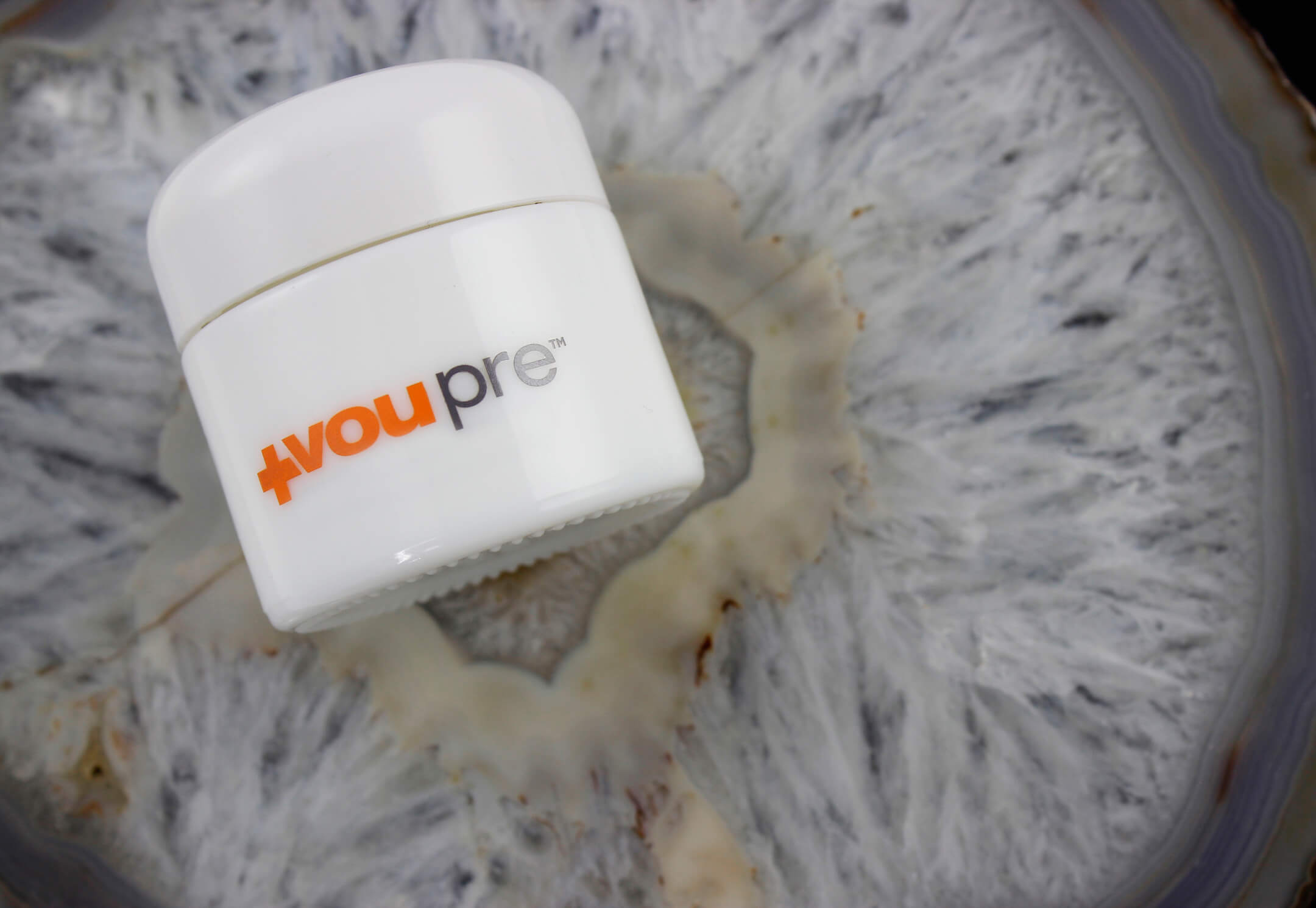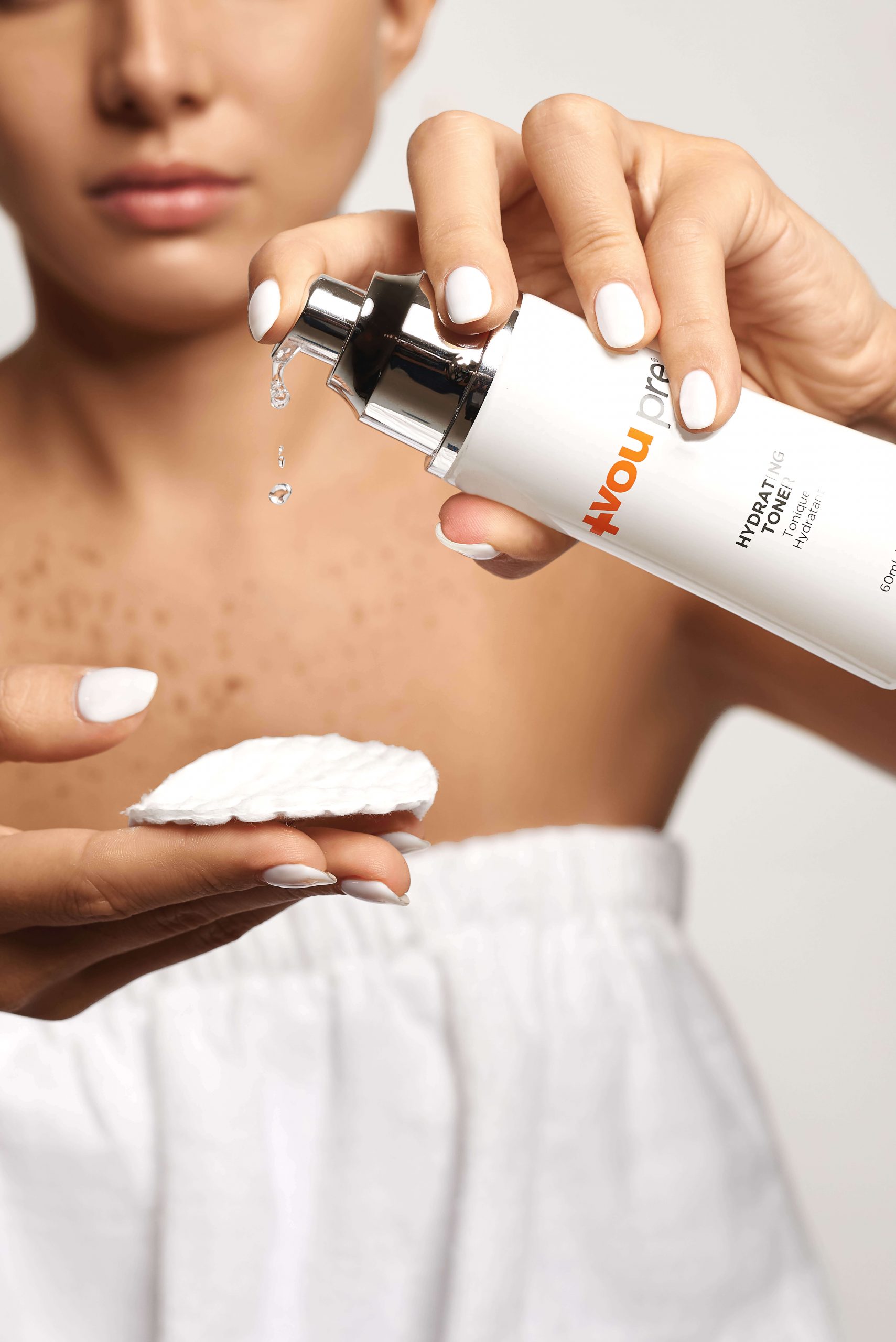
Published:
There’s really no disputing the gut skin connection anymore. Countless studies have now been carried out that confirm the direct link between the gut and the skin, showing the many ways in which issues with gut health can quickly impact skin health. Sure, there are plenty of skincare products out there designed to target the visible skin concerns that arise from this. However, unless you tackle the problem at its root, meaning your gut, your complexion will never fully thrive.
So, where do you begin? How do you know if your skin concerns are caused by imbalances in your gut and, most importantly, what can you do to put things right? Read on as VouPre explains!
What’s the Gut Skin Connection All About?
Your gut and your skin have a very close relationship. After all, your gut is where nutrients are produced, detoxification occurs, hormones are metabolized…all of these processes directly affect your skin, which is your body’s largest organ.
How do the two communicate? It all comes down to your gut microbiome, which refers to the ecosystem of bacteria that live in your gut. These essentially act as microscopic messengers. They relay messages back and forth between your gut and your skin.
However, if that microbiome is imbalanced, a communication breakdown occurs. This can manifest as a variety of skin problems, all of which are a sign that your gut is in need of attention. Let’s take a closer look at some of the main skin issues that occur when the gut isn’t functioning optimally:
Acne
When people struggle with acne breakouts, they usually turn their focus to their skincare routines in an attempt to curb those pimples. Sometimes, this works. Acne can be caused by a variety of factors and if your breakouts are due to, for example, poor cleansing habits, switching to a more powerful foaming cleanser may be all that’s needed to put a stop to the appearance of spots.
However, acne can also be a sign that your gut is imbalanced. Research shows that people who suffer from acne are often lacking ‘good’ bacteria in the gut. They don’t have as much bacterial diversity either. This then leads to intestinal permeability, which is when bacteria from the gut end up in the bloodstream, causing inflammation that triggers breakouts.
Your gut microbiome also influences the bacteria that grow on the skin. An imbalance in the gut could lead to an increase in acne-causing bacteria on your skin’s surface.
Psoriasis
Psoriasis is a skin condition that causes patches of the skin to turn red, itchy, and scaly. It is believed that psoriasis develops due to an overactive immune system. With 70-80% of the immune system residing in the gut, gut health has a huge impact on psoriasis and its symptoms.
This is why there are such strong links between psoriasis and other gut problems too. Inflammatory bowel disorder (IBD) is common among those with psoriasis. Treating the IBD can often help psoriasis symptoms to clear up.
Eczema
Like psoriasis, eczema is another very common skin condition. It results in itchy, dry, and inflamed skin and there are a number of skincare products out there designed to help with this.
While moisturizers and other products may provide temporary relief from that dry and itchy feeling that accompanies eczema, those symptoms are usually a sign of an underlying problem. Allergies and asthma have been known to cause them, as have gut problems. With eczema sufferers often experiencing high levels of gut inflammation, soothing the gut can help to soothe the complexion.
Wrinkles
Want your skin to look smooth and wrinkle-free for as long as possible? This means keeping inflammation to a minimum. Inflammation drastically accelerates the skin aging process, so much so that this process has led to the term ‘inflammaging’ being coined.
This refers to inflammation anywhere in the body, including the gut. Reducing gut inflammation will, in turn, reduce the feeling of inflammation in the skin, keeping it looking youthful for longer.
Boosting Gut Microbiome
As you can see, so many skin concerns can be traced back to the gut skin connection. Give your gut a boost and you’ll be doing the same for your complexion too. Here are a few ways to start making some positive changes for your gut:
Prebiotics and Probiotics

Simply put, probiotics are beneficial bacteria that work to balance out the gut microbiome. Prebiotics are basically food for that bacteria. They encourage the good bacteria in the gut to thrive, contributing to bacterial diversity. Increasing your consumption of both can go a long way in leaving your gut feeling stronger and restored.
Both can be found in a wide range of foods. Whole grains, bananas, leafy greens, onions, and more are rich sources of prebiotics. Meanwhile, fermented foods, such as sauerkraut, kefir, and kimchi, are loaded with probiotics. Adding these foods to your diet, as opposed to taking prebiotic and probiotic supplements, is the best way to boost your gut.
You can also double up on the benefits of probiotics by using skincare products that contain fermented ingredients. The VouPre Dark Circle Eye Cream, for example, boasts resveratrol ferment extract. This fermented form of resveratrol, which is a potent antioxidant, has probiotic effects on the complexion and leaves skin cells feeling significantly healthier.
Reduce Gut Inflammation

As we discussed above, inflammation has a huge impact on the gut skin connection. Many of the skin concerns that arise due to gut imbalances can be attributed to inflammation.
So, how do you minimize inflammation in the gut?
The probiotics and prebiotics that we’ve just talked about will help. However, you’ll also need to reduce your intake of foods that promote inflammation. Gluten, dairy, and sugar are three of the biggest culprits, yet the modern-day diet is full of these foods.
At the same time, work on directly reducing the feeling of inflammation in your skin too. There are a number of topical ingredients that do this well, such as chamomile and aloe vera. Find a product that combines multiple ingredients that offer these properties, just like the VouPre Hydrating Toner, and your skin will soon start to feel much calmer.
Keep Stress Levels Low
You’re likely aware of how stress can directly affect the skin. However, did you know that stress has an impact on gut health too? This then becomes a double whammy for your skin – not only does it have to deal with the direct effects of stress but, due to the gut skin connection, it also has to suffer the consequences of your stress-related gut problems.
Of course, minimizing stress tends to be far easier said than done. While that may be the case, it is possible. How? By finding a few go-to stress relievers that you can turn to in times of need. There are plenty of techniques and activities that have been proven by science to be effective strategies for reducing stress, such as:
- Spending time in nature
- Breathing exercises
- Taking a shower or bath
- Exercising
- Chewing gum
- Spending time with animals
- Playing a video game
- Practicing self-care, such as indulging in a face mask
Give some of those a try whenever you start to feel stressed and you’ll hopefully be able to keep your stress levels at a low.
Exercise Regularly
Not only will exercising help to reduce stress, which will benefit your gut, but exercising in itself is also a great way to strengthen your gut. After all, your digestive tract is a muscle. Exercising gets your body moving, which is good for all of your muscles. The less active you are, the less active your gut will be too, affecting its overall health.
What’s the best way to exercise if you want to boost your gut? Walking is one, due to how it causes the stomach and intestines to contract. Just a half-hour walk a few times a week is all you need to keep your gut feeling strong.
Yoga is another good one. It strengthens the core and enhances gut health. Better yet, it’s also an efficient stress buster!
If those don’t appeal to you, try biking. Those fast movements are great for your gut and will help to increase microbiome diversity.
Get Enough Sleep
It’s common knowledge that sleep is vital for the human body to properly function. It helps every single system in the body, including both the gut and the skin.
However, just two nights of poor sleep are enough to impact gut microbiome. It leads to more imbalances, which, in turn, affect the skin. It doesn’t help that a lack of sleep directly influences the skin too. It’ll accelerate wrinkles, turn the complexion dull, and cause dark, puffy bags to form under the eyes.
If you struggle to sleep properly at night, work on changing this. Start by ensuring that your bedroom provides an environment that induces sleep rather than keeping your body awake. Dim lighting, comfortable bedding, a cool temperature, and soothing music will all help your body to relax.
A good evening routine is also essential. Ideally, stop using electronic devices a couple of hours before bed. The blue light emitted from those devices will only keep you up for longer. A soothing evening skincare routine can be beneficial too. Pamper yourself with rich night creams and hydrating overnight masks, giving your body the self-care that it needs to feel happy and settled.
Summary
As you can see, the gut skin connection has such a big impact on how your skin looks and feels. Improving how you care for your gut will go a long way in improving your complexion. With that said, don’t expect an overnight transformation. It will take at least a couple of months to rebalance your gut, and only then will you start to see improvements in your skin. However, be consistent with your efforts while keeping your lifestyle as healthy as possible and it won’t be long before both your gut and your skin feel healthier than ever before!
Click here to pamper your skin with more bestselling products from VouPre.






